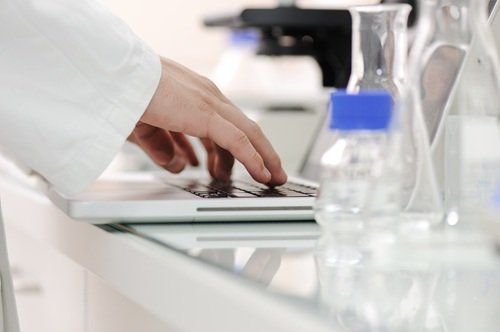Choosing the right antibodies for your research can make or break your experiments. Whether you’re working on Western blots, ELISA, or immunohistochemistry, the quality and specificity of the antibodies you buy directly impact your results. In this guide, we’ll walk you through everything you need to know to buy antibodies that meet your research needs, ensuring accuracy and reliability without wasting time or money.
Why Choosing the Right Antibodies Matters?
Antibodies are critical tools in scientific research. They bind to specific proteins, helping you detect or quantify your target. But not all antibodies are created equal. Poor-quality or non-specific antibodies can lead to false results, wasted samples, and delayed projects. To buy antibodies that deliver, you need to understand what makes a good antibody and how to evaluate your options.
When you buy antibodies, you’re investing in the success of your experiments. High-quality antibodies ensure clear, reproducible results, saving you from troubleshooting vague or inconsistent data. Let’s dive into the key factors to consider.
Understand Your Research Needs
Before you start shopping, clarify what you need. Different experiments require different types of antibodies, and knowing your goals helps narrow your choices. Ask yourself:
- What application are you using the antibody for (e.g., Western blot, flow cytometry, or immunofluorescence)?
- What species is your target protein from? This determines the host species of the antibody.
- Do you need a monoclonal or polyclonal antibody? Monoclonal antibodies offer high specificity, while polyclonal antibodies are often more sensitive.
- What’s your budget? High-quality antibodies can be pricey, but they’re worth the investment for reliable results.
By defining these needs, you can focus on antibodies that match your experiment’s requirements, making the process of buying antibodies much smoother.
Research Antibody Suppliers
Not all suppliers offer the same quality. Some are known for rigorous validation, while others might cut corners. To buy antibodies that work, stick with reputable suppliers. Look for companies with:
- Detailed product datasheets, including validation data and application notes.
- Positive customer reviews and citations in published research.
- Responsive customer support for troubleshooting or questions.
Popular suppliers like Antibody Solutions provide a wide range of validated antibodies, making it easier to find the right fit. Check their catalog to buy antibodies that come with clear documentation and proven performance.
Check Antibody Specificity and Validation
Specificity is the cornerstone of a good antibody. An antibody that binds to unintended proteins can ruin your results. To ensure you’re buying antibodies that are specific:
- Look for validation data. Reputable suppliers provide evidence of specificity through Western blots, ELISA, or other tests.
- Check for cross-reactivity. Ensure the antibody doesn’t bind to similar proteins in your sample.
- Review published studies. Antibodies cited in peer-reviewed papers are often a safe bet.
Validation data gives you confidence that the antibody will work as expected. Don’t skip this step—it’s key to avoiding costly mistakes.
Consider Sensitivity and Application
Sensitivity matters just as much as specificity. An antibody that’s too weak might not detect low-abundance proteins, while one that’s too strong could cause background noise. When you buy antibodies, check if they’re optimized for your specific application. For example:
- Western blot antibodies need high sensitivity to detect proteins on membranes.
- Flow cytometry antibodies require strong fluorescence signals.
- Immunohistochemistry antibodies must work well with fixed tissue samples.
Always review the supplier’s application notes to confirm the antibody suits your experiment.
Evaluate Host and Conjugate Options
Antibodies come from different host species, like rabbits, mice, or goats. The host species affects compatibility with your secondary antibodies and detection systems. When you buy antibodies, ensure the host matches your experimental setup. Also, consider whether you need conjugated or unconjugated antibodies:
- Conjugated antibodies (e.g., labeled with fluorescent dyes or enzymes) are ready for detection but may limit flexibility.
- Unconjugated antibodies require a secondary antibody but offer more versatility.
Choose based on your experiment’s needs and your lab’s equipment.
Read Reviews and Ask for Samples
Before finalizing your purchase, check user reviews on the supplier’s website or research forums. Scientists often share their experiences with specific antibodies, which can guide your decision. Some suppliers, like BioTech Antibodies, also offer sample sizes. Testing a small batch before committing to a larger order can save you from buying antibodies that don’t work for your needs.
Budget Wisely
High-quality antibodies can be expensive, but cutting corners isn’t worth it. Low-cost antibodies might seem tempting, but they often lack validation or consistency, leading to unreliable results. Instead, prioritize value over price. Look for suppliers offering discounts on bulk orders or loyalty programs to make buying antibodies more affordable without sacrificing quality.
Double-Check Storage and Handling
Once you buy antibodies, proper storage is critical to maintain their performance. Most antibodies require refrigeration at 4°C or freezing at -20°C. Check the supplier’s storage instructions and follow them carefully. Mishandling can degrade the antibody, leading to weak or inconsistent results.
Avoid Common Pitfalls
Even experienced researchers can make mistakes when buying antibodies. Here are some traps to avoid:
- Skipping validation data: Always verify the antibody’s performance.
- Ignoring lot-to-lot variability: Ask suppliers about consistency across batches.
- Choosing based on price alone: Quality trumps cost in the long run.
- Overlooking compatibility: Ensure the antibody works with your detection system.
By steering clear of these issues, you’ll increase your chances of success.
Stay Updated on New Antibody Technologies
The antibody market is always evolving. New technologies, like recombinant antibodies, offer improved consistency and specificity. When you buy antibodies, consider exploring these options for cutting-edge research. Subscribe to supplier newsletters or follow industry blogs to stay informed about the latest advancements.
Conclusion
Buying antibodies for your research doesn’t have to be overwhelming. By understanding your needs, researching suppliers, and checking specificity and validation, you can confidently choose antibodies that deliver reliable results. Stick with trusted suppliers, review data carefully, and prioritize quality over cost. With these tips, you’re ready to buy antibodies that power your experiments and drive your research forward. Start exploring options today and take your projects to the next level.



